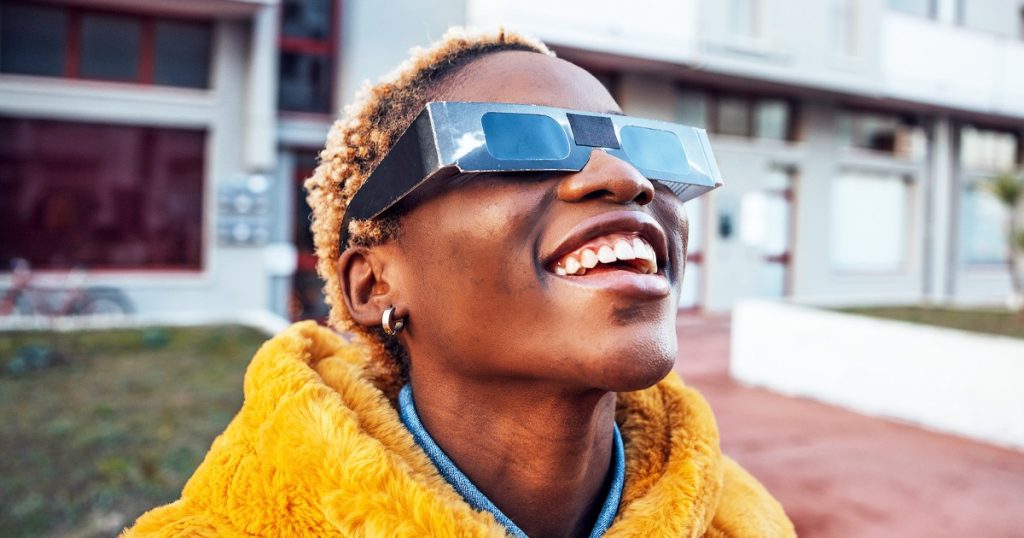On April 8, a solar eclipse occurred in the United States, drawing millions of spectators. However, viewing the eclipse without proper eye protection can cause serious damage due to the intense light from the sun. The American Academy of Ophthalmology recommends using eclipse glasses or solar filters on binoculars or telescopes to view the event safely. Unsafe methods, such as looking directly at the sun or using regular sunglasses, can lead to potential eye injuries. The lens of the eye can focus the sun’s energy onto the retina, causing burns or holes in the vision.
The risk of permanent damage and vision loss is real when looking at the sun without protection, as the ultraviolet rays can quickly harm the retina. Known as solar retinopathy, this condition can cause various symptoms, including watery eyes, headache, sensitivity to light, and distorted vision. While anyone can develop solar retinopathy, children and young adults are at a higher risk. In some cases, a headache may occur as a mild symptom, which can be treated with over-the-counter pain medication.
If you experience eye pain or headaches after viewing the eclipse, it is recommended to avoid bright lights and wear sunglasses with 100% UVA/UVB protection when outdoors. Any vision problems should be addressed by an ophthalmologist immediately, as they can examine the eyes for signs of solar retinopathy and assess any damage. Although there is no specific treatment for solar retinopathy, some individuals may recover their vision over time, while severe cases can lead to irreversible vision loss.
While reports of eye issues and injuries have been documented after past eclipse events, long-term damage and vision loss are relatively uncommon. Research suggests that about 25% of patients with solar retinopathy experience permanent damage, with rare cases resulting in legal blindness in at least one eye. However, data indicates that long-term damage or vision loss after eclipses is not a common occurrence. It is vital to take precautions and use proper eye protection when viewing solar events to prevent any potential harm or damage to the eyes.


